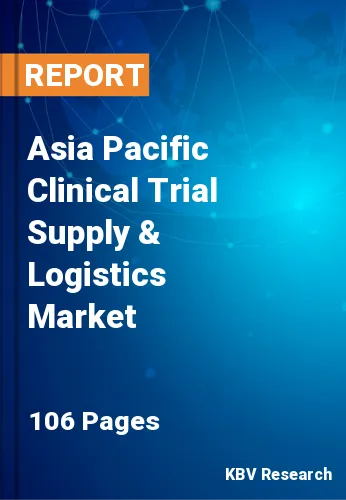The Asia Pacific Clinical Trial Supply & Logistics Market would witness market growth of 8.8% CAGR during the forecast period (2022-2028).
The orchestration of a complete therapeutic supply chain necessitates responsive forecasting and planning. Advanced analytics for patient predictions and interactive response technology (IRT) to assist site and patient forecasting and supply planning are two crucial elements that can contribute to more flexibility. A leading biotechnology company has begun integrating its IRT, RapidResponse, and enterprise resource planning (ERP) systems while also constructing an automated exchange mechanism with logistical service providers.
With enhanced decision and insight generation, this program is bringing increased flexibility, decreased costs, and enhanced investigator and patient experiences. In addition to reducing complaints and deviations, companies that enhance their manufacturing and distribution quality can realize better efficiencies.
The Lighthouse Network is an example of a community of firms that employ digital and analytics technologies along the value chain to improve quality performance while promoting growth, resilience, productivity, and environmental sustainability. Other pharmaceutical companies have already reaped the benefits of digital analytics, including a reduction in quality variations and production costs. Now, the same practices can be used in clinical drug supply operations.
As a "Pillar Industry," the Chinese government is emphasizing medication development. AstraZeneca has declared its intention to invest $100 million in China to grow its research operations. The primary aim of the new initiative will be a program to understand better the genetic profile of Chinese patients to create novel medicines for China. India is also one of the most popular Asian nations for R&D endeavors. Easily accessible patient pools, diverse disease profiles in the patient population, an estimated 50 percent cost savings in Phase I studies and 60 percent cost savings in Phase II & III studies, and well-equipped institutions staffed with skilled professionals are the primary forces driving this trend. These developments are driving the expansion of the Asia-Pacific Clinical Trial Supply & Logistics Market.
The China market dominated the Asia Pacific Clinical Trial Supply & Logistics Market by Country in 2021, and would continue to be a dominant market till 2028; thereby, achieving a market value of $407.4 Million by 2028.The Japan market is estimated to grow a CAGR of 8.1% during (2022 - 2028). Additionally, The India market would experience a CAGR of 9.4% during (2022 - 2028).
Based on End-user, the market is segmented into Pharmaceuticals, Biologicals and Medical Device. Based on Therapeutic Area, the market is segmented into Cardiovascular Diseases, Respiratory Diseases, CNS & Mental Disorders, Oncology and Others. Based on Phase, the market is segmented into Phase III, Phase II, Phase I and Phase IV. Based on Service, the market is segmented into Logistics & Distribution, Comparator Sourcing, Storage & Retention, Packaging, Labeling, & Blinding, Manufacturing and Others. Based on countries, the market is segmented into China, Japan, India, South Korea, Singapore, Malaysia, and Rest of Asia Pacific.
Free Valuable Insights: The Worldwide Clinical Trial Supply & Logistics Market is Projected to reach USD 5.5 Billion by 2028, at a CAGR of 7.8%
The market research report covers the analysis of key stake holders of the market. Key companies profiled in the report include Thermo Fisher Scientific, Inc., Catalent, Inc., Marken (United Parcel Service of America, Inc.), Piramal Enterprises Limited, FedEx Corporation, Inizio Group Limited (Clayton, Dubilier & Rice), Parexel International Corporation (Phoenix Parentco, Inc.), Almac Group, Movianto (Walden Group SAS), and Deutsche Post DHL Group (The Deutsche Post AG)
By End-user
By Therapeutic Area
By Phase
By Service
By Country
Our team of dedicated experts can provide you with attractive expansion opportunities for your business.

